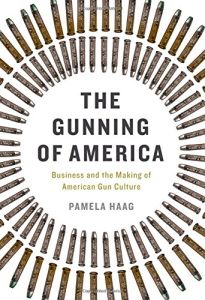Join getAbstract to access the summary!

Join getAbstract to access the summary!
Pamela Haag
The Gunning of America
Business and the Making of American Gun Culture
Basic Books, 2016
What's inside?
Take cover in this academic history of US gun manufacture and its attendant mythologies.
Recommendation
In the American imagination, Colt, Winchester, and Smith & Wesson guns are frontier legends, part of a pistol-packing ethos baked into the national psyche. The reality is messier, reports historian Pamela Haag in this study of the US armaments industry. She traces the way American gun manufacturers perfected gun production, and then cultivated a market at home and abroad. Gun control advocates will appreciate Haag’s take on the morality of commercializing lethal weapons, but the National Rifle Association posted a review on its website panning her book. Haag writes dazzling sentences, but sometimes strains to create a narrative that makes compelling reading. Even so, she uncovers fascinating material about the roots of the US gun business. While always politically neutral, getAbstract recommends her fresh look at the long-established, often misunderstood industry at the center of many contemporary policy discussions.
Summary
About the Author
Pamela Haag holds a doctorate in history from Yale University. Her work has appeared in American Scholar, Slate and The Times of London.


















Comment on this summary